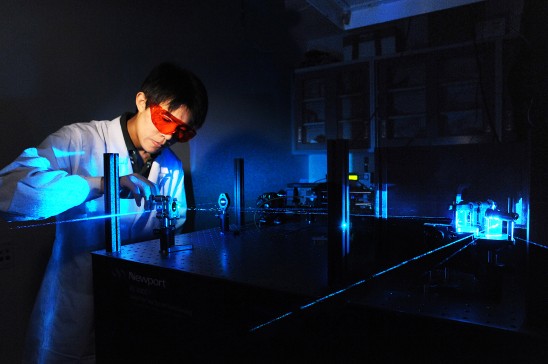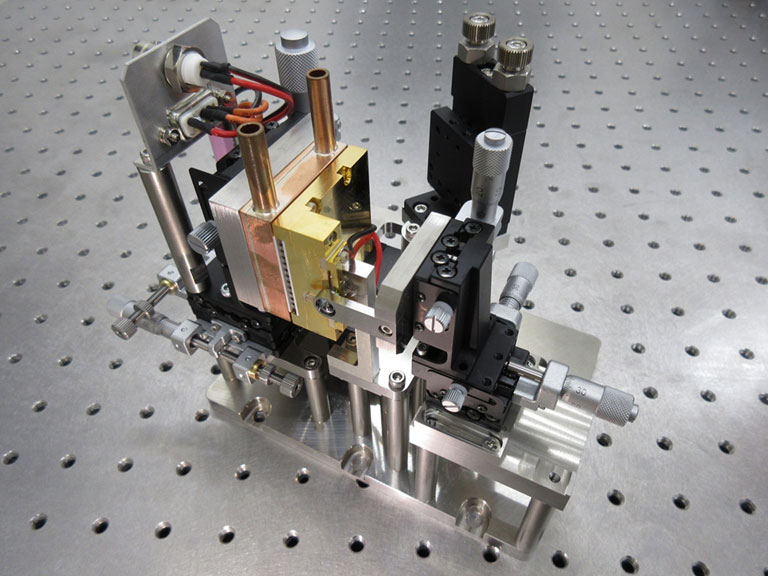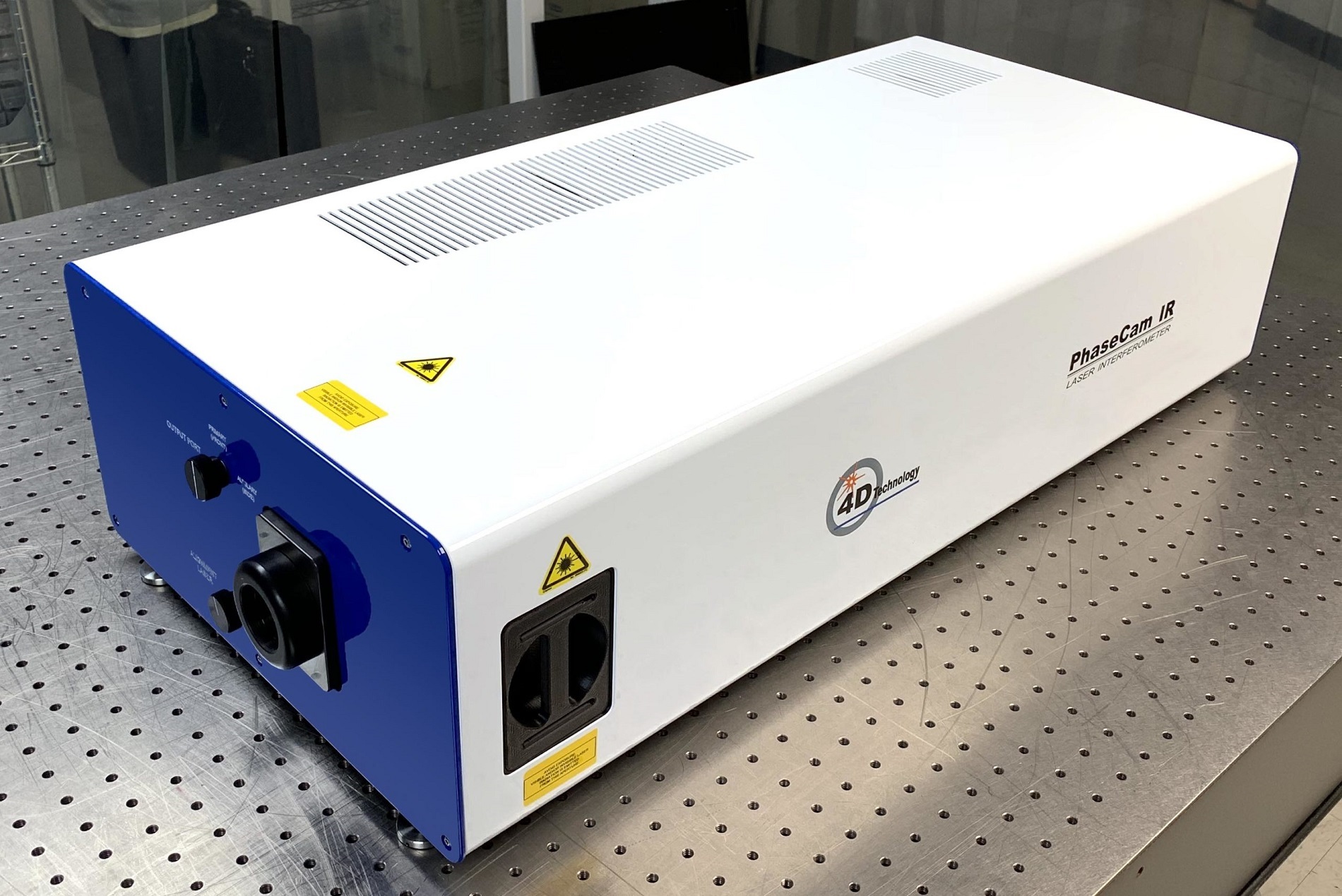January 6, 2015
A group of photonics industry members is joining with five key research universities to compete for the federal government’s Integrated-Photonics Institute for Manufacturing Innovation (IP-IMI) and $110 million in federal funds to be matched by state and private funding for a total project value of more than $230 million. The University of Central Florida, Georgia Institute of Technology, the University of Alabama-Huntsville, Clemson University, the University of Illinois and partners have formed PRISM—the Photonics Research Institute for Sustainable Manufacturing—to focus their assets and expertise on an industry-led, not-for-profit IP-IMI centered in the Southeastern U.S. but with national reach.
With confirmed interest of more than 55 companies spanning the entire value-chain of integrated photonics, PRISM is seeking additional interested industry partners to participate in the development of an agenda of priority challenges in the evolution of integrated photonics. PRISM is gearing up to submit a full proposal by March 31.
The Department of Defense will award $110 million to the winner of the IP-IMI, which will bridge the gap between basic research and product development. Proposers are required to make an equal investment in the project. PRISM is anchored by $120 million in investments already committed by the University of Central Florida, Osceola County, the Florida High Tech Corridor Council and Enterprise Florida in a 100,000- square-foot state of the art advanced manufacturing research facility being built in Osceola County. That facility is managed by the International Consortium for Advanced Manufacturing Research (ICAMR), a non-profit industry-led consortium.
PRISM is led by Winston Schoenfeld, who currently serves as director of the crystalline silicon (c-Si) branch of the Photovoltaic Manufacturing Consortium (PVMC), and was responsible for the establishment of the first industry-led domestic manufacturing consortium for c-Si photovoltaics. He also serves as director of the Solar Technologies Research Division at UCF’s Florida Solar Energy Center, and is an associate professor of optics at CREOL, The College of Optics & Photonics. Schoenfeld has a broad background that spans both academia and industry, including high-tech startups, uniquely positioning him to lead this effort across industrial, academic, and government sectors.
The competition seeks to strengthen the U.S. manufacturing base by developing innovations utilizing photonics circuits and identifying and overcoming obstacles in fabrication, packaging, testing and validation.
Osceola County’s more than $61 million investment for design, construction and equipment costs associated with the facility in addition to the land, makes pursuit of the grant more feasible, officials said.
Additional collaborators have the opportunity to help shape PRISM’s response to the federal call to provide national leadership in establishing a robust and vital integrated photonics industry.
Political leaders have embraced the efforts of PRISM and ICAMR and emphasize the potential economic impact such an ambitious project will have in the region.
Congressman Dan Webster, who represents Florida’s 10th district including part of the I-4 corridor, said “The University of Central Florida College of Optics and Photonics is a recognized leader in photonics-related R&D, and I am excited for the positive impact that this industry cluster will have on Florida’s economic stability. Photonics is a critical aspect to our national security and global competitiveness, and I am in full support of UCF’s new initiative.”
Congressman Alan Grayson, whose district includes Osceola County, expressed excitement for the possibility of manufacturing growth in Central Florida and said UCF has the strengths needed to lead the effort.
“The university is a global leader in the photonics field and it is uniquely positioned to lead this nationwide effort,” Grayson said. “An institute of this kind would be an incredible asset to the Central Florida community, bringing new employment opportunities to the area, increasing higher-wage jobs, and expanding our state’s economy.”
And Sen. Bill Nelson, who has been a consistent supporter of UCF and its research efforts, said, “This is yet another feather in UCF’s cap as the university continues to establish itself as a major research institution.”
Securing federal funding for PRISM would greatly add to the roughly 30,000 photonics-related jobs in the state, said Alex Fong, president of the Florida Photonics Cluster. While a 2009 report by The Corridor and Florida Photonics Cluster put the gross regional product at $3.65 billion and sales of these companies at $7.27 billion, the national impact of the industry rises to more than $3 trillion.
http://today.ucf.edu/ucf-partners-form-prism-compete-federal-integrated-photonics-project/















